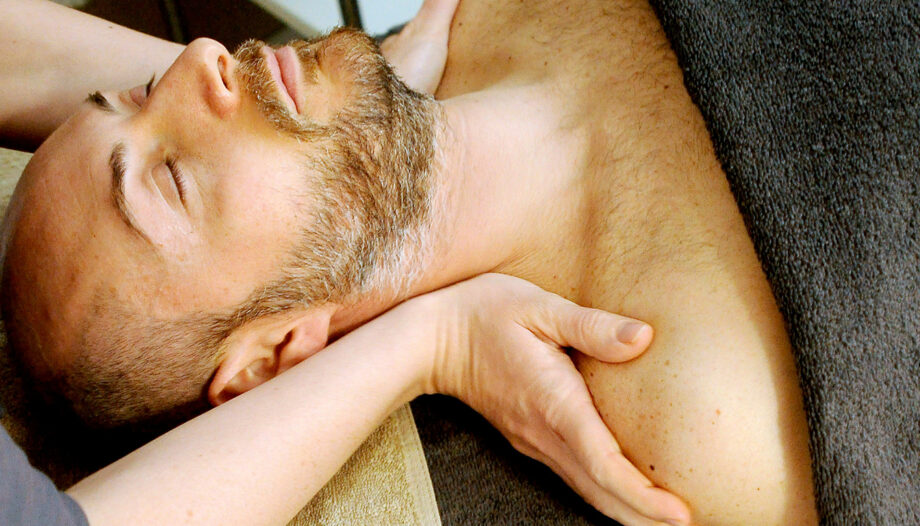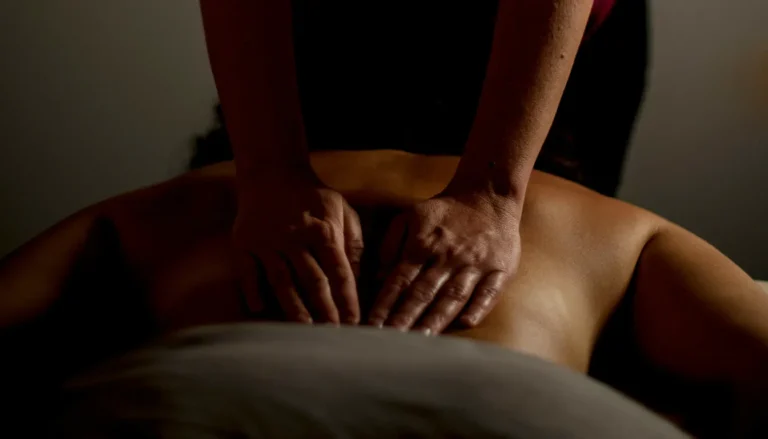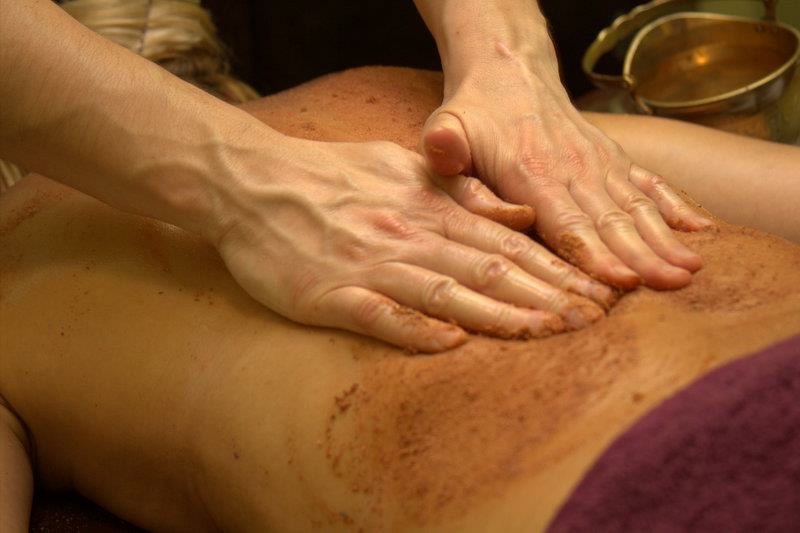It’s Okay to Not Be Okay: Massage for Mental Health
In today’s fast-paced world, the conversation around mental health has become more important than ever. While it’s crucial to acknowledge that “it’s okay to not be okay,” it’s equally important to explore effective ways to cope and heal. One powerful method that’s gaining attention is massage for mental health. This holistic approach not only nurtures the body but also plays a significant role in calming the mind, reducing stress, and promoting overall emotional well-being.
Understanding Mental Health and Its Challenges
Mental health encompasses our emotional, psychological, and social well-being. It affects how we think, feel, and act. Stress, anxiety, and depression are just some of the challenges that can affect mental health, leading to a decline in quality of life. According to the World Health Organization, mental health conditions are on the rise globally, with one in four people experiencing mental health issues at some point in their lives .
While traditional treatments such as therapy and medication are effective, many individuals are now seeking complementary approaches to improve mental well-being. This is where massage for mental health and holistic therapies step in, offering a natural, supportive path to mental and emotional healing.
How Massage Helps Mental Health
Massage therapy is widely recognized for its ability to relieve physical pain and muscle tension, but its benefits for mental health are equally significant. The mind and body are interconnected, and when we take care of our physical selves, it has a positive impact on our emotional and mental state. Let’s explore how massage for mental health can help in various ways:
1. Reducing Stress and Anxiety
Massage promotes relaxation by reducing the production of cortisol, the body’s primary stress hormone. High levels of cortisol can lead to anxiety, depression, and even physical health issues like hypertension. Massage stimulates the parasympathetic nervous system, which promotes feelings of calm and reduces the “fight or flight” response.
Massage techniques such as Swedish massage and Abhyanga (Ayurvedic oil massage) are designed to soothe the nervous system and ease the mind. At Kama Calm, our therapists specialize in providing calming, nurturing massages that target both the physical body and mental health, allowing you to experience deep relaxation and stress relief.
2. Improving Sleep
Lack of sleep is one of the most common issues associated with poor mental health. Massage can help by encouraging the production of serotonin and melatonin, hormones that regulate mood and sleep. A good night’s rest is essential for maintaining emotional balance and mental clarity.
At Kama Calm, our Kinetic Chain Release (KCR) therapy is known for its ability to realign the body, helping clients experience better sleep quality. Learn more about KCR here.
3. Alleviating Symptoms of Depression
Depression is often accompanied by feelings of hopelessness, fatigue, and even physical pain. Massage can serve as a therapeutic intervention for depression by increasing the production of dopamine and serotonin, neurotransmitters that regulate mood and happiness. Studies have shown that regular massage therapy can significantly reduce symptoms of depression and provide a sense of comfort and connection .
4. Enhancing Self-Awareness and Emotional Release
Massage encourages a deeper connection with your body. As the therapist works through areas of tension, clients may experience an emotional release as physical tension dissipates. This process can provide relief from pent-up emotions, enabling clients to feel more connected to their emotional health.
Holistic therapy approaches like Ayurvedic massage and Udvartana (herbal powder massage) are not just about the physical body. They integrate the mind, body, and spirit to promote healing on multiple levels. Explore the benefits of Ayurvedic massage at Kama Calm.
The Role of Holistic Therapy in Mental Health
Holistic therapies take a whole-body approach to wellness, addressing not just the symptoms but the root causes of mental health issues. These therapies recognize that mental, emotional, and physical health are deeply interconnected and that true healing comes from balancing all aspects of the self.
1. Restoring Balance
Holistic therapies such as massage, reiki, and acupuncture work to restore the body’s natural balance. Mental health issues can often stem from an imbalance in energy, emotions, or lifestyle. Massage and other holistic treatments help to realign the body’s energy, creating harmony between the mind and body.
At Kama Calm, we offer a variety of holistic therapies aimed at promoting emotional well-being and balance. Please make sure to read this article about holistic therapy for anxiety relief.
2. Promoting Mindfulness
Holistic therapy encourages mindfulness, the practice of being present and fully engaged in the moment. During a massage, clients are encouraged to tune into their body’s sensations, promoting a state of mindfulness that can help calm racing thoughts and reduce anxiety. This mindful awareness helps individuals connect with their inner selves, fostering mental clarity and emotional resilience.
Mindfulness-based therapies are widely recommended for managing mental health conditions like anxiety and depression , and massage provides an excellent entry point for those seeking a more mindful approach to healing.
3. Nurturing a Supportive Environment
One of the most powerful aspects of holistic therapy is the therapeutic relationship between the therapist and the client. A supportive, nurturing environment fosters trust and healing. At Kama Calm, our experienced therapists are trained not only to offer exceptional physical treatments but also to provide emotional support during each session.
This supportive setting is critical for individuals who may feel isolated or overwhelmed by their mental health challenges.
Seasonal Mental Health and Massage
Different times of the year can bring about changes in our mental health. During the winter months, for example, many people experience Seasonal Affective Disorder (SAD), a type of depression triggered by a lack of sunlight. Massage can be particularly beneficial during these colder months, offering a natural way to boost mood and energy levels.
In the summer, when life can feel busier and more hectic, massage provides a much-needed opportunity to slow down, reconnect with your body, and reduce stress.
Massage for Anxiety Relief
Anxiety is one of the most common mental health challenges, affecting millions of people worldwide. Massage can provide significant relief for individuals suffering from anxiety. Techniques such as deep tissue massage, aromatherapy, and hot stone massage are particularly effective for easing muscle tension and calming the nervous system.
At Kama Calm, we specialize in helping clients manage anxiety through personalized holistic treatments. Our experienced therapists work closely with each client to tailor the therapy to their unique needs, ensuring optimal results.
Massage for Emotional Healing
Massage is not just a physical treatment; it’s also a deeply emotional experience. Many individuals carry emotional stress in their bodies, which can manifest as tension, pain, or fatigue. By addressing these physical symptoms, massage can facilitate emotional healing.
Research shows that massage can help release emotional blockages and encourage feelings of peace and relaxation. This is especially important for individuals dealing with grief, trauma, or overwhelming stress .
How to Choose the Right Massage for Mental Health
Choosing the right type of massage for your mental health needs depends on your specific symptoms and preferences. Below is a table that highlights various massage options and their mental health benefits:
| Type of Massage | Mental Health Benefits | Duration |
|---|---|---|
| Swedish Massage | Reduces anxiety, promotes relaxation | 60-90 minutes |
| Deep Tissue Massage | Relieves chronic stress and tension | 60-90 minutes |
| Aromatherapy Massage | Eases anxiety and depression with essential oils | 60-90 minutes |
| Hot Crystals Massage | Soothes nervous system, promotes deep relaxation | 60-90 minutes |
| Abhyanga (Ayurvedic) | Balances mind and body, boosts mood | 60-90 minutes |
| Kinetic Chain Release | Realigns body, improves mental clarity and emotional balance | 45-60 minutes |
FAQs: Massage for Mental Health
1. How often should I get a massage for mental health benefits?
It depends on your individual needs, but many people find that weekly or bi-weekly massages provide significant relief from stress and anxiety.
2. Can massage therapy help with depression?
Yes, regular massage can boost serotonin and dopamine levels, which are crucial for regulating mood and reducing symptoms of depression.
3. What type of massage is best for anxiety?
Aromatherapy massage, Swedish massage, and hot stone massage are particularly effective for managing anxiety.
4. Is massage a substitute for therapy or medication?
Massage is a complementary treatment. It can enhance the effectiveness of therapy and medication but should not be used as a sole treatment for mental health conditions.
5. Can I combine massage with other holistic therapies?
Absolutely! Many people find that combining massage with practices like reiki, acupuncture, or meditation provides even greater mental health benefits.
Conclusion
Massage for mental health is a powerful and natural way to nurture both the body and mind. By reducing stress, promoting emotional release, and enhancing self-awareness, massage offers a holistic approach to healing. At Kama Calm, we’re committed to helping you find balance and well-being through our range of personalized massage therapies.
If you’re struggling with mental health challenges, remember that it’s okay to not be okay. Reach out for support and consider incorporating massage therapy into your self-care routine. Book your next massage at Kama Calm, and start your journey toward a healthier mind and body today.








